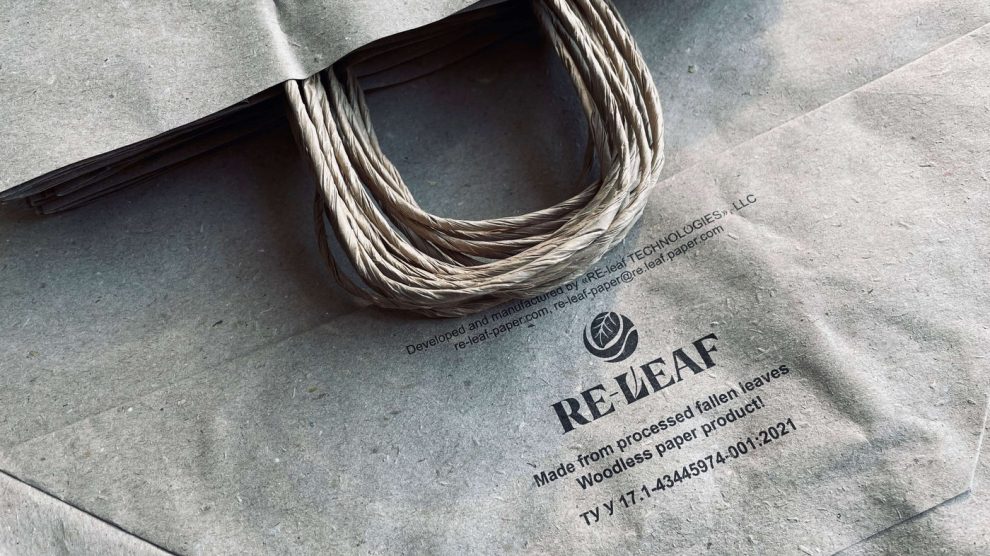Calculations made recently by University of Copenhagen professor Per Gundersen suggest that some 600,000 tons of CO2 could be stored per annum if all Danes simply allowed yard waste to decompose in their gardens instead of burning it.
Releaf Paper, however, a greentech start-up founded in 2021 by two Ukrainian innovators, has a different idea about how to use that waste. Their technology, developed by biotechnologist Valentin Frechka (currently 21 years old), allows the processing of fallen leaves and other green waste into cellulose, which is the basis for creating paper and some types of packaging.
This material is a direct replacement for primary cellulose obtained from wood. That leaf paper is fully recyclable and has a biodegradation period of only 60 days. As the solution uses raw materials it helps reduce carbon dioxide emissions by 78 per cent. It also contributes to forest conservation.
Alexander Sobolenko, chairman and general manager at Releaf Paper, speaks with Andrew Wrobel about the solution and about how low awareness of alternative sources of paper is among potential business partners. Many are interested in sustainable solutions but find it hard to understand the concept.
They also talk about how other start-ups and small companies can understand their carbon footprint and what they can do to make an impact.
Unlike many news and information platforms, Emerging Europe is free to read, and always will be. There is no paywall here. We are independent, not affiliated with nor representing any political party or business organisation. We want the very best for emerging Europe, nothing more, nothing less. Your support will help us continue to spread the word about this amazing region.
You can contribute here. Thank you.



Add Comment